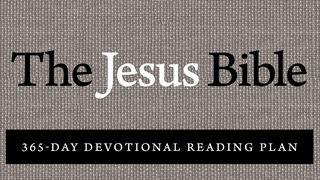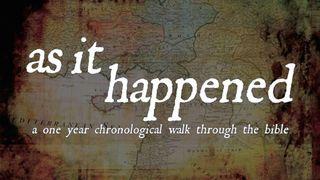For The Love Of GodSample

BEFORE EMBARKING ON PROVERBS 1, I must say a little about “wisdom” in the Old Testament. For us, wisdom means something like sagacity. The wise person is insightful, perceptive, even shrewd, able to apply knowledge to diverse people and circumstances. One can understand why T. S. Eliot, in one of his more prescient anticipations of the digital age, asked where wisdom is now that it has been lost in knowledge, and where knowledge is now that it has been lost in information.
But wisdom in the Old Testament, though its meaning sometimes overlaps with modern English use, has a flavor all its own. At one level, it is a broad concept that embraces the structure of everything in God’s universe, both substance and relationships, even before anything exists (cf. Prov. 8:22). The glory of God is manifested in such wisdom; it may even be manifested by his resolve to hide such wisdom (Prov. 25:2). Yet at another level, wisdom in the Old Testament is simply a skill of one kind or another. (1) It may be the skill to survive, which is why ants and lizards are said to be extremely wise (Prov. 30:24-28). (2) It is the skill to get along with people, what we call “social skills”—how to get along with friends, employers, rulers, spouse, and above all with God. Intuitively one glimpses how this practical “wisdom” or skill is related to the fundamental wisdom, i.e., to how things really are in God’s universe. This use of “wisdom” is strikingly common in Proverbs. (3) Wisdom may refer to some technical skill or other (e.g., Ex. 28:3). In today’s categories, one might have the “wisdom” to run a lathe or program a computer or sew a fine garment. One of these practical skills, one that overlaps with the second entry, is administrative skill, administrative wisdom. This includes judicial insight. It involves not only the mechanics of administration, but being able to listen attentively and penetrate to the heart of a matter (e.g., Deut. 1:15). This, of course, was the “wisdom” for which Solomon prayed (1 Kings 3); it is the wisdom that characterizes the Messiah (Isa. 11:2).
The proverbs of this book, then, are set out “for attaining wisdom and discipline; for understanding words of insight; for acquiring a disciplined and prudent life, doing what is right and just and fair” (Prov. 1:2-3). The opposite of wisdom is therefore not only “folly” in some intellectual sense, but “folly” understood to be little short of sin. So the “son” of this chapter is exhorted to follow the instruction of Mum and Dad (Prov. 1:8), or more generally, to pursue wisdom (Prov. 1:20ff.); the alternative is to be enticed by sinners into some other path (Prov. 1:10ff.).
But wisdom in the Old Testament, though its meaning sometimes overlaps with modern English use, has a flavor all its own. At one level, it is a broad concept that embraces the structure of everything in God’s universe, both substance and relationships, even before anything exists (cf. Prov. 8:22). The glory of God is manifested in such wisdom; it may even be manifested by his resolve to hide such wisdom (Prov. 25:2). Yet at another level, wisdom in the Old Testament is simply a skill of one kind or another. (1) It may be the skill to survive, which is why ants and lizards are said to be extremely wise (Prov. 30:24-28). (2) It is the skill to get along with people, what we call “social skills”—how to get along with friends, employers, rulers, spouse, and above all with God. Intuitively one glimpses how this practical “wisdom” or skill is related to the fundamental wisdom, i.e., to how things really are in God’s universe. This use of “wisdom” is strikingly common in Proverbs. (3) Wisdom may refer to some technical skill or other (e.g., Ex. 28:3). In today’s categories, one might have the “wisdom” to run a lathe or program a computer or sew a fine garment. One of these practical skills, one that overlaps with the second entry, is administrative skill, administrative wisdom. This includes judicial insight. It involves not only the mechanics of administration, but being able to listen attentively and penetrate to the heart of a matter (e.g., Deut. 1:15). This, of course, was the “wisdom” for which Solomon prayed (1 Kings 3); it is the wisdom that characterizes the Messiah (Isa. 11:2).
The proverbs of this book, then, are set out “for attaining wisdom and discipline; for understanding words of insight; for acquiring a disciplined and prudent life, doing what is right and just and fair” (Prov. 1:2-3). The opposite of wisdom is therefore not only “folly” in some intellectual sense, but “folly” understood to be little short of sin. So the “son” of this chapter is exhorted to follow the instruction of Mum and Dad (Prov. 1:8), or more generally, to pursue wisdom (Prov. 1:20ff.); the alternative is to be enticed by sinners into some other path (Prov. 1:10ff.).
About this Plan

A daily devotional for discovering the riches of God's word: For the Love of God is a daily devotional designed to walk a person through the Bible in a year while assisting the reader in discovering the riches of God's Word. Our hope is that this daily devotional will deepen your understanding and appreciation of God's Word, for the love of God.
More
We would like to thank The Gospel Coalition for providing this plan. For more information, please visit: thegospelcoalition.org









